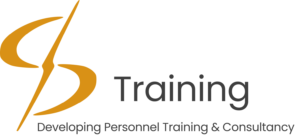In today’s fast-paced and ever-evolving world, higher education stands as a cornerstone for personal growth, career advancement, and societal progress. Across the globe, institutions of higher learning serve as hubs of knowledge, innovation, and enlightenment, offering students opportunities to explore diverse fields of study, expand their horizons, and unlock their full potential.
From prestigious universities steeped in tradition to vocational schools specialising in practical skills, the higher education landscape encompasses many options tailored to meet the diverse needs and aspirations of learners from all walks of life.
Within the multifaceted realm of higher education, a compelling debate rages on between practicality and prestige. On the one hand, there exists a growing emphasis on the practical utility of education, with students and families increasingly prioritising tangible outcomes such as employability, earning potential, and career advancement.
On the other hand, a deeply ingrained reverence persists for prestigious institutions and elite universities, driven by notions of academic excellence, intellectual rigour, and social status. This dichotomy between practicality and prestige underscores the complex interplay of factors shaping individuals’ educational choices and societal perceptions of success.
Practicality in Higher Education
The rising cost of tuition and escalating student debt burdens have become pressing concerns for individuals pursuing higher education. As tuition fees continue to soar at universities and colleges worldwide, students and their families grapple with the financial strain of funding their education. Mounting student loan debt has emerged as a significant barrier, hindering graduates from achieving financial stability and pursuing their career aspirations.
In today’s competitive job market, there is a growing emphasis on evaluating higher education through the lens of return on investment (ROI) and career prospects. Students and prospective learners are increasingly scrutinising the value proposition of their educational pursuits, weighing factors such as job placement rates, earning potential, and long-term career trajectories.
The proliferation of vocational and skills-based programs reflects a broader shift towards practical and career-focused education in response to evolving industry demands and workforce trends. Vocational schools, technical colleges, and specialised training programs offer targeted instruction in areas such as healthcare, information technology, construction trades, and culinary arts, equipping students with the hands-on skills and industry certifications needed to succeed in competitive job markets.
Amidst concerns about rising educational costs and student debt, there is a heightened focus on enhancing affordability and accessibility in higher education. Institutions and policymakers are exploring innovative strategies to reduce financial barriers and expand educational opportunities for underserved and marginalised populations. Initiatives such as need-based financial aid, tuition-free community college programs, and online learning platforms aim to democratise access to quality education and empower individuals from diverse backgrounds to pursue their academic and career aspirations.
Prestige in Higher Education
Traditionally, prestigious institutions of higher education have been revered for their illustrious histories, esteemed faculty, and rigorous academic standards. These institutions often boast centuries-old legacies and esteemed alumni networks, symbolising excellence and intellectual distinction in the academic community.
The influence of rankings and reputation plays a pivotal role in shaping perceptions of prestige within higher education. Annual rankings published by reputable organisations such as the U.S. News & World Report, Times Higher Education, and QS World University Rankings serve as barometers of institutional quality and performance, evaluating factors such as academic reputation, faculty credentials, research output, and student outcomes.
The perceived value of Ivy League and elite universities extends beyond academic excellence to encompass notions of social status, cultural cachet, and professional prestige. Ivy League institutions, including Harvard, Yale, and Princeton, evoke images of academic exclusivity, intellectual rigour, and social elitism, attracting high-achieving students and aspiring professionals eager to join the ranks of esteemed alumni.
Societal and cultural factors play a pivotal role in shaping perceptions of prestige within higher education, reflecting broader norms, values, and aspirations embedded within society. In many cultures, educational attainment is revered as a symbol of social status, intellectual prowess, and personal achievement, driving individuals to pursue educational opportunities at prestigious institutions as a means of upward mobility and societal validation.
Factors Driving the Shift in Preferences
- Economic Realities and Job Market Demands
Economic realities and job market demands significantly influence individuals’ preferences in higher education. In an increasingly competitive global economy, employers seek candidates with specialised skills, practical experience, and relevant credentials to meet evolving industry demands.
As a result, students and professionals are prioritising educational pathways that offer tangible pathways to employment and career advancement. The rising cost of tuition and the burden of student debt further underscore the need for educational investments that yield measurable returns regarding job placement, earning potential, and long-term financial stability.
- Changing Perceptions of Educational Quality and Value
Changing perceptions of educational quality and value drive a shift in preferences among prospective learners and stakeholders. In the digital age, traditional prestige and academic reputation markers are being reevaluated in favour of more holistic measures of educational excellence and student success.
Institutions that prioritise innovation, experiential learning, and student-centred approaches to teaching and learning are gaining recognition for their ability to deliver high-quality education that equips graduates with the knowledge, skills, and competencies needed to thrive in today’s dynamic and interconnected world.
- Impact of Technology and Online Learning Platforms
The proliferation of technology and online learning platforms is reshaping the landscape of higher education and influencing individuals’ preferences for flexible, accessible, and personalised learning experiences. Technological advancements, including cloud computing, artificial intelligence, and virtual reality, are revolutionising how educational content is delivered, accessed, and consumed.
Online learning platforms offer learners the flexibility to pursue education at their own pace, on their own schedule, and from virtually anywhere in the world, removing barriers of time, distance, and accessibility that once constrained educational opportunities.
- Generation-specific Attitudes Towards Education
Generation-specific attitudes towards education play a pivotal role in shaping preferences and priorities among today’s learners. Millennials and Generation Z, for example, value authenticity, diversity, and social responsibility in their educational experiences, gravitating towards institutions and programs that reflect their values and interests.
These digital natives are also more accustomed to technology-enabled learning environments and seek educational experiences that leverage digital tools, social media platforms, and collaborative technologies to enhance engagement and interactivity. Understanding different generations’ unique preferences and expectations is essential for educational institutions seeking to attract and retain students in an increasingly competitive marketplace.
Balancing Practicality and Prestige
- Importance of Aligning Educational Goals with Career Aspirations
Aligning educational goals with career aspirations is crucial to striking a balance between practicality and prestige in higher education. Understanding one’s career interests, strengths, and long-term objectives is essential for making informed decisions about educational pathways. By identifying areas of passion and professional growth, individuals can select programs and institutions that offer relevant coursework, experiential learning opportunities, and career development resources aligned with their career trajectories.
- Evaluating Factors Beyond Prestige, such as Program Fit and Faculty Quality
While prestige may hold allure in higher education, evaluating factors beyond reputation, such as program fit and faculty quality, is equally important. The suitability of a program’s curriculum, pedagogical approach, and learning environment plays a significant role in determining educational outcomes and student satisfaction. Individuals should consider factors such as faculty expertise, research opportunities, internship placements, and alumni networks when assessing the quality and suitability of educational programs.
- Exploring Alternatives to Traditional Higher Education Paths
In today’s rapidly changing educational landscape, individuals can access various alternative pathways to higher education beyond traditional degree programs. Vocational schools, apprenticeship programs, boot camps, and online learning platforms offer flexible, affordable, and specialised educational opportunities tailored to diverse learners’ needs and career paths.
Exploring alternative education pathways allows individuals to gain practical skills, industry certifications, and hands-on experience relevant to their chosen fields without the time and financial commitments associated with traditional degree programs.
- Considering Long-Term Implications of Education Choices
When weighing the trade-offs between practicality and prestige in higher education, it is essential to consider the long-term implications of education choices for professional qualifications. Individuals should reflect on their short-term goals, long-term aspirations, and values to make informed decisions that align with their individual priorities and circumstances. Considering factors such as debt burden, geographic mobility, career advancement opportunities, and work-life balance can help individuals navigate the complexities of educational decision-making and plan for sustainable, fulfilling futures.
Explore Your Career Path with DP Training:
The debate between practicality and prestige underscores the multifaceted nature of higher education and the diverse aspirations of learners seeking knowledge, skills, and opportunities for personal and professional growth. By embracing the principles of equity, excellence, and adaptability, educational institutions and policymakers can navigate the complexities of the modern educational landscape and empower learners to thrive in an increasingly interconnected and dynamic world.
So, are you ready to unlock your potential and take your career to new heights? Look no further than DP Training, your gateway to skills-based training and work-ready qualifications.
At DP Training, we offer diverse programs designed to equip students with the practical skills and knowledge needed to thrive in today’s competitive job market. Whether you’re interested in pursuing a Community Services, Business or Health Services course, we have a program tailored to your unique career goals and aspirations.
So, go ahead and visit our website today.
Happy Learning.

